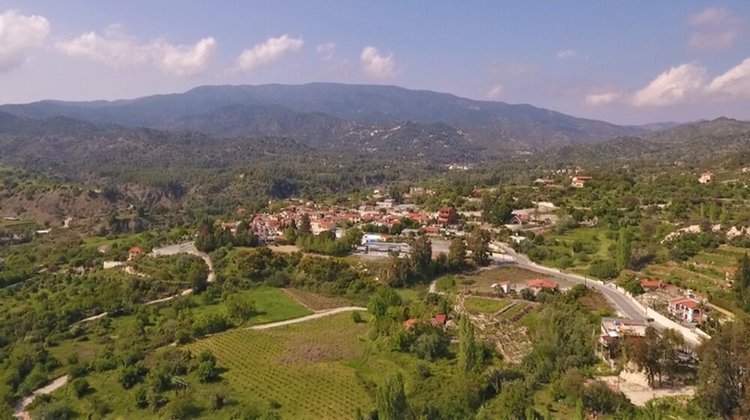Limassol district agrotourism enjoying wine and gastronomy boost
08:37 - 23 April 2025

There are 57 agrotourism businesses operating in the Limassol district, offering opportunities for quality vacations in traditional and other uniquely characterised buildings, stated the Director of Tourism at the Deputy Ministry of Tourism and President of the Cyprus Agrotourism Company (KEA), Annita Dimitriadou
She was speaking in an interview with the Limassol Chamber of Commerce & Industry publication Epiheirimatiki Lemeso (Entrepreneurial Limassol.)
She emphasised that these businesses add value to Limassol’s tourism product and enrich it by investing in traditional hospitality and the beauty of the natural environment.
In response to a related question, the President of the Cyprus Agrotourism Company stated that 35 of these businesses are members of KEA. She added that 18 of them offer accommodation opportunities, with several managing more than one lodging, while 17 businesses provide related activities. "We recognize that there is room for increasing our membership, and we are working in this direction by organizing meetings to attract new members. In general, there is growing interest in investments in rural areas, which is attributed to opportunities emerging through European and national funding schemes," Annita Dimitriadou added.
The Director of Tourism at the Deputy Ministry noted that the data maintained regarding the visitation of agrotourism businesses is collected on a nationwide basis. Indicatively, based on preliminary data, arrivals at traditional accommodations in 2024 increased by 17% compared to 2023 and by 42% over a five-year period. Similarly, overnight stays at traditional accommodations in 2024 saw a 14% increase compared to 2023 and a 36% increase compared to 2019.
Dimitriadou emphasised that 2024 was a record-breaking year for tourist arrivals, surpassing 4 million visitors. Significant revenue growth was also recorded, with an estimated increase of 7.3% over 2023, reaching €3.21 billion. A key takeaway, as she pointed out, "is that there was an increase in arrivals outside the peak season, a particularly important period for agritourism. These increased arrivals certainly benefited the countryside, which is highly popular not only among foreign visitors but also among locals."
The President of KEA explained that the organisation implements a comprehensive action plan that benefits its members. As part of this plan, it runs an online promotional campaign for its members, participates in major and specialised tourism exhibitions abroad, hosts journalists and Instagram influencers, and maintains a website, which is currently being upgraded. Additionally, KEA participates in European programs that provide training and networking opportunities for its members with similar businesses across Europe. "KEA's active participation in the European Federation Rural Tour, where I hold the position of Vice President, helps promote our members at the European level and identify new opportunities," she highlighted.
The main challenges faced by agrotourism businesses in the Limassol area, as well as nationwide, include minimising their environmental footprint, offering authentic experiences, and investing in specialised niche markets, Dimitriadou pointed out. She added that designing and implementing sustainable practices in energy, water, and waste management is crucial for the sustainability of agrotourism accommodations. This can be achieved through the adoption of new technologies and best practices both in Cyprus and abroad. She noted that by implementing sustainable practices, agrotourism accommodations will become more competitive and gain a comparative advantage, as sustainability is highly valued by clientele.
According to the Director of Tourism, another challenge for agrotourism businesses in Limassol is the provision of activities and authentic experiences. Owners of agrotourism lodgings and rural residents, in general, have the opportunity to take advantage of the initiatives offered by the Deputy Ministry of Tourism, such as workshops on cultural and agricultural heritage, participation in the multi-thematic route "Heartland of Legends," and attendance at wine and gastronomy festivals supported by the Deputy Ministry through a special scheme.
She also emphasised that Limassol’s rural communities are highly popular for their wine tradition and gastronomy, which gives them a comparative advantage and makes them particularly attractive to visitors. "Let’s not forget that the Limassol district is home to 14 communities that produce the world’s oldest wine with a protected designation of origin, Commandaria. Last year, the Deputy Ministry of Tourism designated 2024 as the Year of Gastronomy and Commandaria and carried out significant promotional actions," she pointed out.
Finally, she mentioned that the Deputy Ministry of Tourism operates a Grant Scheme for the upgrading of hotels and tourist accommodations in rural, mountainous, and remote areas, with an open call currently in place. Agrotourism business owners have already submitted applications, and new schemes will soon be announced under the Common Agricultural Policy and the Leader program.
The article was first published in the Limassol Chamber of Commerce publication Epiheirimatiki Lemeso (Entrepreneurial Limassol.)

